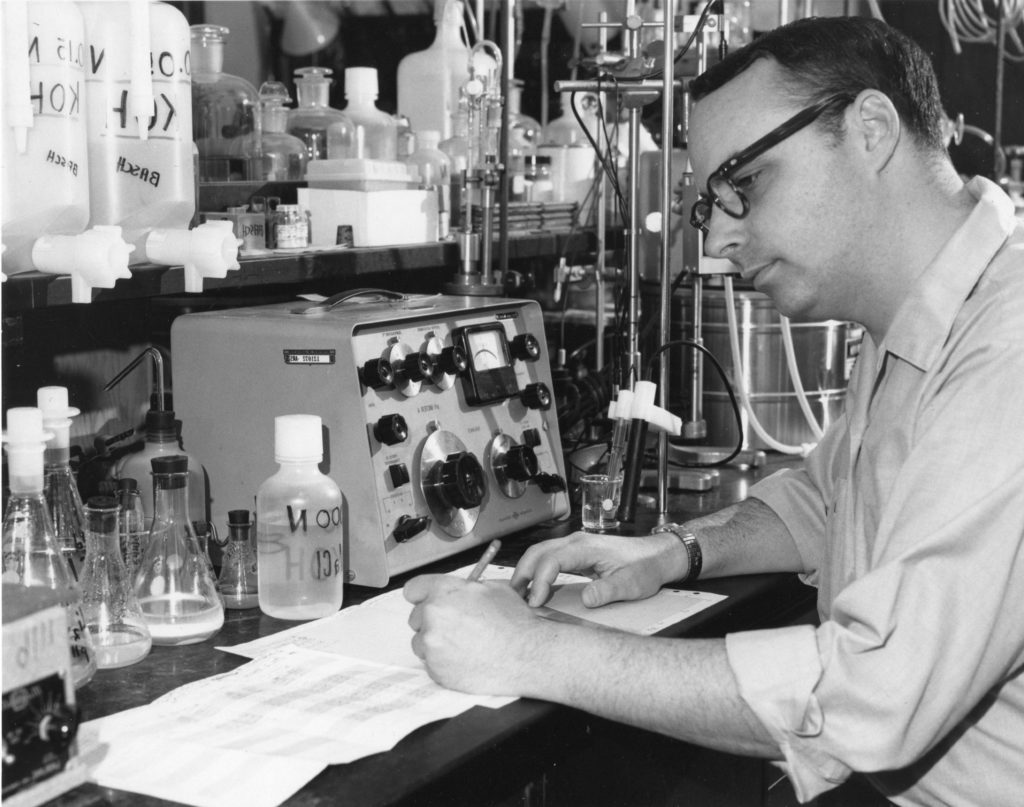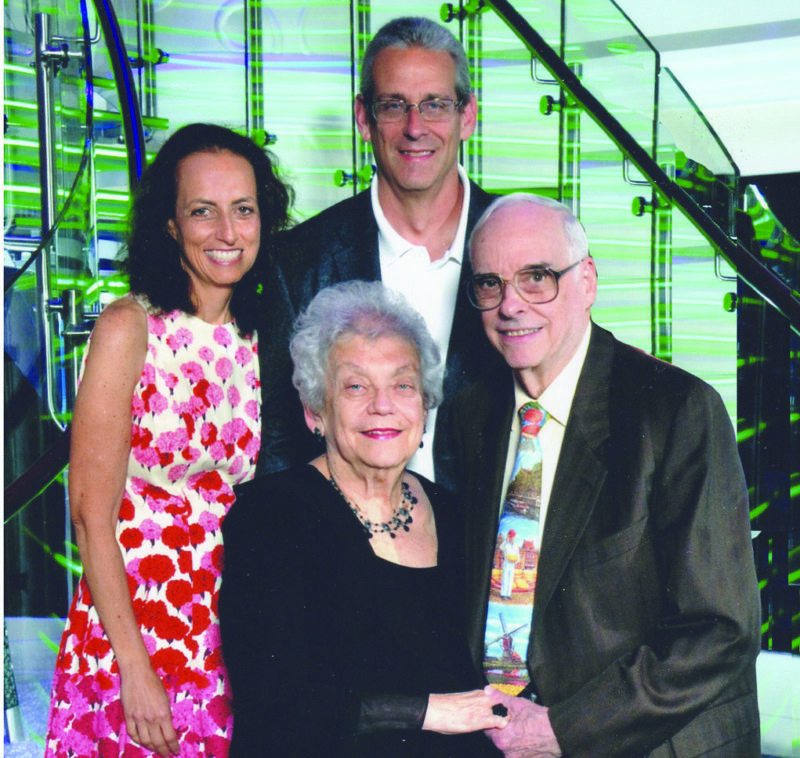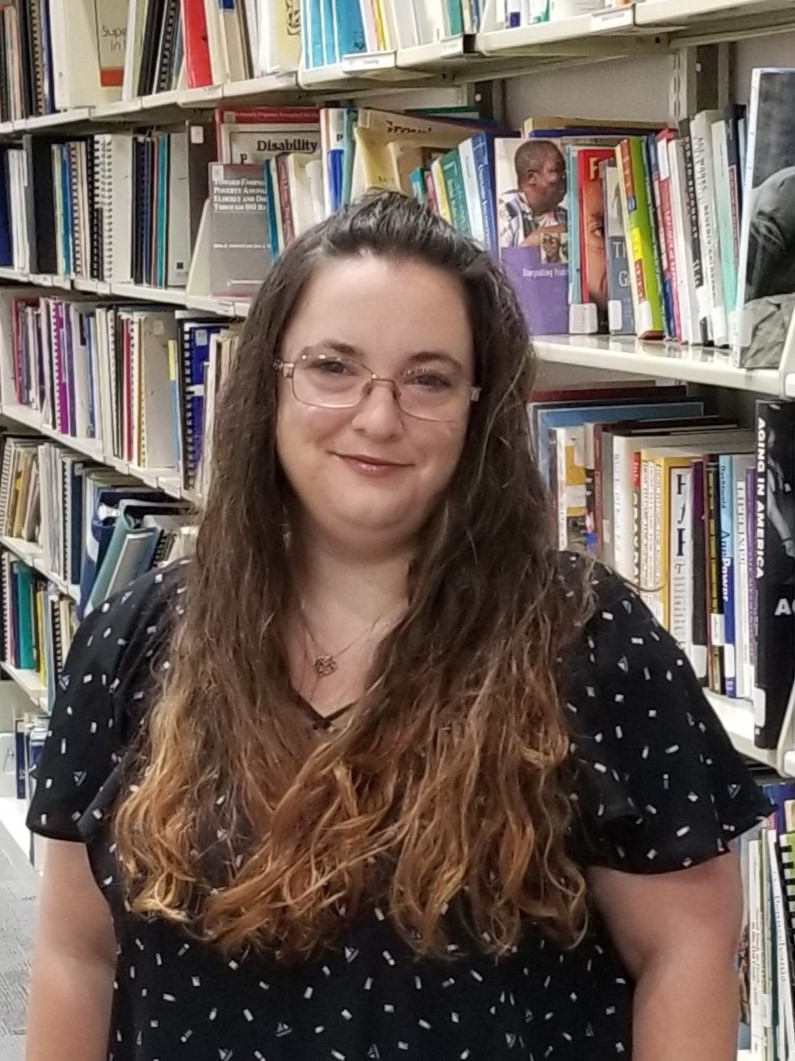Navigating a world without hearing
By Constance Garcia-Barrio
When a fire truck roared by a few feet away from Jay Basch, then 2 years old, his mother realized he didn’t react to the noise. He just kept his eyes fixed on a Woolworth’s window display. Jay’s parents took him to Shriners Children’s Hospital, where tests showed a profound hearing loss.
“The doctor told them, ‘Your son is healthy in every way, except he can’t hear,’” Jay said through a sign language interpreter.
The Centers for Disease Control and Prevention (CDC) Early Hearing Detection and Intervention Program estimates that 1.7 out of every 1,000 babies screened are diagnosed with a permanent hearing loss each year. This early detection and intervention helped Jay, now 89, and his wife, Marilyn, 88, who’s hard of hearing, to lead very full lives.
The Basch family had the good fortune to live on West Gowen Avenue in Mount Airy. “Our house was right across from the Pennsylvania School for the Deaf [PSD],” Jay said. “When I was 3, my parents hired a PSD teacher to come to the house after school and teach me.”
Jay entered PSD at 6, the earliest possible age at that time, and studied there for 10 years. “PSD built up my self-confidence … and prepared me for challenges in the outside world,” he said. “(Before I graduated), my father took me to different high schools. In the 1950s, before technological aids, like text messages, learning was a challenge.” Friends Select, with its small classes and empathetic teachers, proved a good, but demanding, choice for Jay.
Later, at the University of Pennsylvania, where Jay majored in zoology, he sat beside girls and copied their notes. “Girls were better note takers than boys,” he said. He finished his bachelor’s degree in five years.
“After graduating from Penn, Jay interviewed with the U.S. Department of Agriculture (USDA),” said Jay’s daughter Shari. “The personnel staff brought in someone who, though not a sign-language interpreter, could understand and communicate with Jay. Some people understand him when he speaks, and some don’t.”
USDA’s Eastern Regional Research Facility in Wyndmoor hired Jay. While working, he attended night and weekend classes in chemistry to earn a master’s degree from Drexel University and a doctorate from Temple University.
Meanwhile, Jay had met his wife Marilyn, who is hard of hearing, at Philadelphia’s Silent Athletic Club. “Before I was married [in 1957], I worked at New York Life Insurance,” said Marilyn. After marriage, she stayed home until Shari and her brother, Bruce, were preteens. During that time, Marilyn volunteered with the Cub Scouts, Girl Scouts and school activities.
“Later, I worked at the Ashbourne Market, a gourmet food store in Elkins Park,” Marilyn said. “I wore a hearing aid, and I could communicate with my bosses, co-workers, vendors and customers, especially since the interactions were face-to-face vs. by phone.”

While working at the USDA’s Animal Protein Pioneering Section, Jay focused on dairy products. He devised a method to detect the adulteration of many kinds of cheeses. He also found ways to boost the benefits of dairy products.
“I studied the homogenization of milk, where fat globules are broken up so that they don’t separate into cream,” Jay said. “You want the fat globules to stay large enough so that they pass through the body and don’t get stuck in blood vessels.”
The U.S. Civil Service Commission named Jay its Outstanding Handicapped Federal Employee of the Year in 1969, one of many awards he won during his career. “I communicated with my colleagues by using my voice and lip-reading,” Jay said. “If necessary, we wrote things down.”
Amid their busy lives, the Basches still found time for enjoyment. “My parents have literally traveled to the seven continents, including Antarctica,” Shari said. “My mom signed for my dad. They would let tour guides know about their hearing losses, and they found that locals were quite accommodating.”
Though the passing years have brought changes, the couple remains determined. “My mom has experienced a decline in her hearing,” Shari said. “My dad has been deaf from birth, and his deafness hasn’t caused further challenges as he gets older. Thankfully, with today’s technology, such as texting on smart phones, they can communicate with others.”
After retirement, Jay and Marilyn volunteered at many places, including the Hebrew Association of the Deaf; Deaf and Hard of Hearing Senior Citizens of the Delaware Valley; and the Pennsylvania School for the Deaf, where Marilyn was the volunteer manager of the monthly alumni newsletter for several years.
Resources for deaf, hard-of-hearing community
The Community College of Philadelphia, 1700 Spring Garden St., offers courses and a program in American Sign Language/English Interpreting (INT). 215-751-8000 | ccp.edu/academic-offerings
The Pennsylvania School for the Deaf, 100 W. School House Lane, hosts public events that increase attendees’ understanding of deafness. 215-951-4700 (voice) | 267- 331-4748 (videophone) | psd.org
The Mayor’s Office for People with Disabilities advocates for policies, programs and systemic changes that maximize independence and community integration for Philadelphians with disabilities. 215-686-2798 | phila.gov/departments/mayors-office-for-people-with-disabilities/resources
The National Association of the Deaf (NAD), the nation’s largest civil rights organization of, by and for deaf and hard of hearing individuals, provides a range of information [in English and Spanish] for deaf and hard of hearing people, their families, and friends. Headquartered in Silver Spring, Maryland, NAD provides some services specifically for older adults who are deaf. 301-338-6380 | videophone: 301-587-1788 (Purple/ZVRS); 301-328-1443 (Sorenson) | nad.org | email: nad.info@nad.org
Native Philadelphian Constance Garcia-Barrio writes about many topics, including Black history.




